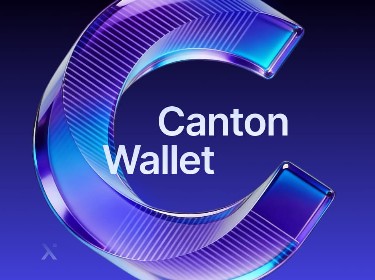In the age of information and communication technologies, cybersecurity is one of the biggest concerns for most businesses. With the centralized and firewalled IT systems not living up to their promises, blockchains are living up to become the backbone of next-generation secure applications.
Blockchain offers a way to efficiently store data, execute transactions, perform functions, and establish trust in an open environment. It is a breakthrough technology for cryptography and cybersecurity with broad use cases in banking, healthcare, supply chain, government services, etc. In synergy with artificial intelligence and big data, blockchain technology is being considered as the cornerstone for the next generation financial services.
Blockchain security is guaranteed by the use of sophisticated cryptographic algorithms and distributed computing. In parallel to its positive impact, the increasing adoption of these systems has triggered many debates around their security and privacy issues. While some of these discussions are legitimate, many of them are often misleading.
Read on and out cyber security audit experts will share how exactly blockchain solutions are secure and whether or not their application addresses the vulnerabilities prevalent in traditional systems.
What is blockchain?
Blockchain is a distributed database that records network transactions and organizes them into a hierarchical chain of blocks. The integrity of each block in the chain is enforced by sophisticated cryptography algorithms.
The chain of blocks is created and maintained by a peer-to-peer network of software agents, called nodes. New blocks are committed to the global blockchain by these agents after the successful completion of the decentralized consensus procedure.
Blockchain has several advantages over other modern IT systems, which include:
- Decentralization allows all participating users to be part of the consensus, with the ability to audit information stored on the blockchain, without the need for a central authority.
- Transparency is ensured by granting universal access where every user has his own full copy of the distributed database. This quality of blockchains makes them one of the most trusted systems.
- Immutability guarantees that the recorded data will never be removed from the ledger and remain accessible, offering members of the network to view the full history of transactions.
How blockchain works
Blockchain, as a peer-to-peer network, makes use of clearly defined consensus for executing transactions between the nodes. In terms of cryptocurrency, for instance, the transactions will be related to the transfer of funds. In other applications, transactions can be related to their respective process data.
Making transactions on the blockchain involves the following steps:
- Block formation. A blockchain node broadcasts a transaction to the network. Transaction data is placed in the pool of unconfirmed transactions, where the candidate block is formed.
- Block validation. Participants of the blockchain validate the new blocks by solving a cryptographic puzzle. Blockchain rules determine the method of validation (proof of work, proof of stake, proof of authority, etc.). After the successful validation, the block is broadcasted to the network.
- Block acceptance. At least 51% of the nodes in the network must accept the new block for it to be valid and appended to the blockchain. Finally, the blockchain is extended, and the process repeats for new transactions.
In the Bitcoin network, for instance, the proof of work is used for block validation. Any node in the network can attempt to validate the block through a process called mining. Miners are awarded in cryptocurrency for every successful validation of a new block.
Is blockchain secure?
![]()
Blockchains have a heterogeneous architecture made up of cryptographic algorithms and mathematical models. The structure of the blocks plays a crucial role in enabling distributed consensus and ensuring the security of the system. The blocks that form the network consist of:
- Data which may include transaction records, contracts, or even IoT device telemetry.
- Hash value of the current block is generated to serve as a cryptographic image of the block that can be verified by anyone.
- Hash value of the previous block is an encrypted string used to link to the previous block in order to form the chain.
- Timestamp. A record of the time when the block was created.
- Additional information including digital signatures, nonce value, etc.
Consensus (agreement) mechanism is enforced by the nodes in the blockchain network to facilitate the admission of new blocks into the blockchain, secure verification of the accepted blocks, and store data consistently inside the blocks. This guarantees that every block is properly validated and that the stored data is tamper-proof.
The original blockchain consensus method used in Bitcoin and many other networks is proof of work (PoW). It requires members of the network to solve mathematical problems that require strong computational power. Only blocks that contain valid proof of work are accepted in the blockchain. The decentralized nature of the blockchains, along with their use of crypto algorithms, and consensus mechanism, make them one of the most secure architectures of modern information technology.
What are private and semi-private blockchains?
![]()
Public blockchains are the most dominant on the market. They are open to everyone who wants to become a member of the network. In order to jump on board, however, you will need to have a software system with enough computing power and memory to initiate, monitor, validate transactions, and actively participate in network consensus. Public blockchains are often called “permissionless” as they do not restrict access for their members, so all the data is accessible to everyone.
Private blockchains, on the other hand, are access-restricted and have ground rules managing access to the data for different user groups. Private blockchains are permission-based environments. They are not fully decentralized as they have a clearly controlled hierarchy. Nevertheless, they are distributed and each node still maintains its copy of the blockchain. These blockchains are usually set-up by enterprises that are interested in protecting their proprietary information.
Consortium blockchains, often called semi-private, are a mixture of public and private blockchains. In this case, the consensus is reached by a group of equal validators, usually appointed by the majority of network members. The rules of semi-private blockchains are relatively flexible. This means that access to different datasets may be limited only to the validators, selected user groups, or open to all. Consortium blockchains are often employed by multiple organizations that wish to have a common platform for sharing information and making transactions.
Private and semi-private blockchains have additional layers of security built in and are generally useful as enterprise-level infrastructure. Public blockchains still dominate when it comes to integrating cryptocurrency into traditional systems and tokenization of assets to attract investment.
Blockchain security issues
![]()
Blockchains in spite of being one of the most secure systems in operation, can at times suffer from security vulnerabilities largely due to weaknesses in the design and implementation specifics of these systems. Some of the most common issues include “51% vulnerability”, private key security, exchange hacks, social engineering, double spending, and transaction privacy leakage. However, most of the issues below can be mitigated with the help of smart contract security audit services. A comprehensive smart contract audit will enable you to reduce risks and increase the security and performance of your blockchain-powered solution.
51% vulnerability
Blockchain’s consensus mechanism has a 51% security vulnerability that can be exposed by malicious attackers in an attempt to control the network. In the proof of work-based blockchain (like the Bitcoin platform), a 51% attack occurs when a single miner or a pool of miners own more than 50% of total hashing power. While in a proof of stake based blockchain (like the Ethereum network), a 51% attack can be performed by a single miner who owns more than 50% of all the funds.
Popular blockchains with many participating nodes and a lot of mining capacity behind them, a 51% attack would be extremely expensive to undertake. Smaller blockchains that have less hashing power are more vulnerable to such attacks.
Private key security (wallet security)
The private key serves as the identity and security credential. In the majority of blockchains today, public and private keys are generated using the elliptical curve digital signature algorithm (ECDSA). Thanks to this algorithm, the public key can be derived from the private key, but not vice-versa. While the public key can be shared and used as the address for sending transactions, the private key should always be kept safe, known only to the owner.
In spite of the blockchains being inherently secure structures, their security is directly related to the private key. The exposure of the private key will give an attacker access to one’s blockchain wallet, and to the funds kept in it.
Once lost, private keys cannot be recovered. If the private key is by any chance stolen by attackers, it will give them full access to the associated blockchain account and the opportunity to initiate transactions. Since the blockchain is not controlled by any centralized authority, it is difficult to track and recover the lost funds or information.
Exchange hacks
In recent years, as the pursuit of blockchain monetary benefits continues, the cryptocurrency trading business has become very popular. Due to the speculative nature of cryptocurrency value, the exchange is often considered the go-to option for quick investment return.
The main security issue with exchange services is that by centralizing the network they are diminishing the inherent security benefits of blockchains. For the exchange to work, the users are usually required to sign up for the services and register their wallets in third party databases. The IT infrastructure that serves as the backbone of the exchange services suffers from classical network security issues and is often prone to attacks.
When using exchange services to trade cryptocurrency, it is important to take additional security measures. The safest methods of storing cryptocurrency are either using hardware or paper wallets. These wallets are so-called cold storage wallets that have minimal exposure to malicious online attacks. We advise users to perform trading on decentralized exchanges (DEX) as they communicate directly with the cryptocurrency wallet.
Social engineering
In the context of blockchain security, social engineering entails the use of various deceptive techniques to manipulate individuals into uncovering and sharing their private keys, passwords, and other sensitive information that can be used for fraudulent purposes. The most common outcome of social engineering is identity theft, while it can also result in significant financial losses.
Phishing is one of the most popular forms of social engineering. In this scheme, the attacker impersonates a trustful resource and sends out messages, notifications, and emails requiring the victims to click on malicious links, fill out forms, and give out their sensitive information.
A typical phishing scenario involves the attacker using the domain name similar to the legit one. This way they defraud investors and point them to send funds to a false ICO payment address.
To avoid falling prey to a phishing scam, make sure to:
- Never share login credentials or private keys.
- Educate yourself and the people around you about common cases of social engineering.
- Never click on the email attachments, links, ads, or websites of unknown origin.
- Use anti-malware software and keep the software applications and operating systems updated.
- Use multi-factor authentication solutions whenever possible.
Double spending
Double-spending is a situation in which the same digital funds are spent multiple times. Prevention of double spending is one of the most important challenges associated with digital currency transactions. In a centralized system of financial transactions, a third-party intermediary is responsible for verifying transactions and preventing double-spending.
On the other hand, in the blockchain-based decentralized network, a reliable consensus mechanism has to be put in place to prevent double-spending. In the Bitcoin network, double spending attacks are prevented by evaluating and verifying the authenticity of each transaction using the transaction logs stored in Bitcoin’s blockchain protocol.
Transaction privacy leakage
In public blockchain networks, transactions are open and transparent. Their architecture makes every transaction traceable as well. The publicity of the data on the network keeps information synchronized and allows reaching consensus among distributed nodes.
At the same time, there are some privacy risk concerns associated with public data. Transactions could contain sensitive information about their issuers. In some blockchain applications, such as the internet of things or mobile crowdsourcing, transaction privacy leakage is a critical issue.
Indirect privacy leakage is possible through disclosure of the transaction content. Namely, the analysis of the transaction graph could uncover the correlation between transaction addresses. This correlation could further lead to revealing the user’s identity from additional data collected elsewhere.
To mitigate risks related to transaction privacy leakage, our KYT solution provides advanced monitoring of cryptocurrency transactions, helping detect any suspicious activities while ensuring compliance with regulatory standards. This enhances privacy protection by maintaining a balance between transparency and security.
Blockchain use cases to ensure data security
![]()
Each industry has different operational settings and often requires a unique approach to securing data stored by infrastructure and software systems. Here are several examples of how blockchains are used as cybersecurity pillars in traditional banking, healthcare, supply chains, and government applications.
Traditional Banking
Security is of paramount importance in the traditional banking industry. In the financial sector, intermediaries and banks are experiencing the most security breaches with serious economic consequences. Most of these security breaches are associated with the use of outdated and centralized cybersecurity protocols.
Most financial industry stakeholders have agreed that a multi-layered security protocol is necessary to decentralize risk and increase the security of financial transactions and customer data. Due to these reasons, many traditional banking enterprises are looking into blockchain as a potential solution.
The fact that historical data cannot be changed on the blockchain can enhance the security of banking data. Further, blockchains can facilitate the secure sharing of newly added real-time information about banking transactions, making it difficult to manipulate the data for purposes of fraud. The transparency of transactions makes the audit of financial data convenient and straightforward for the regulators.
Healthcare
Healthcare institutions create, store, and distribute, large amounts of data accessed by medical experts on a daily basis. Records are created the moment a patient is admitted and checks in with the administrator, sharing their personal information. Further data entries follow the medical procedures that the patient undergoes.
As this data on the patient can also be shared between different hospitals where the patient is being treated, the quality of medical care highly depends on the quality of data. Due to the nature of the data containing the personal medical records, its security, privacy, and integrity must be guaranteed by a secure data management system.
Blockchain solutions can make sure that only the necessary information is reachable to certain healthcare professionals, protecting a patient’s privacy, and eliminating the chance of fraudulent activities. Transparency and communication between patients and healthcare providers can also be enhanced using these systems.
Supply Chains
Supply chains are complex ecosystems that involve many stakeholders like the exporters and importers, origin and destination agents, consolidating and customs bonded warehouses, ports, shipping companies, insurance companies, and governmental agencies. One of the biggest challenges in supply chain management is maintaining the chain of custody. Efficient audit procedures need to be put in place to prevent illegal activities, counterfeit product circulation, and cargo losses.
Blockchains are powerful tools for handling information exchange to increase the overall security of cargo. They provide interoperable, immutable, and resilient information management platforms for supply chain participants. Using blockchains can improve the transparency of supply chains, speed-up the auditing process, and reduce fraudulent activities.
Government
A possible scenario to incorporate the distributed ledger technology in government is to use blockchain in identity management. As most government services are making a shift towards actively using online platforms, the electronic government (e-government) initiative is gaining more and more traction. E-Government uses information and communication technologies to efficiently deliver public services to individuals, businesses, and organizations.
Most modern e-government systems use digital identity management systems. These platforms store data on centralized infrastructure with duplicate servers and databases. Naturally, central management and validation systems are constantly exposed to cybersecurity threats such as malware, denial of service attacks, and data breaches.
E-Government systems gather, file, and analyze large amounts of confidential data about citizens, employees, products, legal and financial institutions. These systems must be secured and privacy-preserved, as their failure could have severe economic, legal, and social implications.
State services and organizations are gradually starting to see blockchain technology as a viable solution for e-government data security. Blockchain networks store data in sealed blocks, distributed to all responsible personnel. The data is verifiable, immutable, and, most importantly, encrypted. Blockchains can ensure both information security and privacy while increasing the trust in government services.
Top 5 blockchain security companies
![]()
Using blockchains as the cybersecurity solutions have created a lucrative market for innovative development companies to crop up. Here are some of the market players that are pioneering the use of blockchains to deliver valuable cybersecurity solutions.
Bitfury
Bitfury was founded in 2011 as a bitcoin mining hardware manufacturer. Bitfury today offers a suite of blockchain security services. Exonum is their blockchain-as-a-service enterprise solution, designed to help governments and companies integrate blockchain into their operations. Crystal is a web-based software tool that helps financial institutions and law enforcement manage blockchain investigations. Peach is their bitcoin payments portfolio focused on bringing streamlined and secure cryptocurrency payments to vendors and merchants.
Trezor
Trezor manufactures hardware wallets where users can store their private keys. Trezor One is one of the most trusted and ubiquitous hardware wallets in the world. Trezor allows secure cryptocurrency transactions by storing the private keys offline, completely isolated from public networks and associated risks.
PixelPlex
PixelPlex is a blockchain development company with expertise in AI, IoT, and cybersecurity technologies. PixelPlex is developing safe, secure, and scalable blockchain solutions. Their all-in-one security token offering platform allows companies to access innovative investment opportunities worldwide while maintaining industry-standard security protocols. The platform allows for easy digitization of shares and turning them into Ethereum security tokens.
Hacera
Hacera is a tech startup that offers a flexible blockchain for enterprises. Hacera is solving payment-related problems, including data security, privacy, confidentiality, and fragmentation. Their systems allow users to engage in digital transactions without intermediaries. Hacera Mine is a data provenance solution that helps customers validate the origin, ownership, authenticity, and integrity of data. Their Private-Sea blockchain software protects the identity of participants and the contents of transactions (such as the amount paid or balances), even in permissioned blockchains.
AnChain.ai
Anchain.ai is a blockchain-powered ecosystem providing cybersecurity solutions to individuals and organizations. They offer a range of blockchain-based products to identify cybersecurity vulnerabilities in systems. The AnChain Situational Awareness Platform (SAP) was built with features including an AI-driven correlation engine with Blockchain threat intelligence. The Smart Contract Auditing Platform (CAP) uses smart contract technology to audit, scan, and identify all known vulnerabilities. Their Blockchain Threat Intelligence (BTI) is a service that allows clients to reap the benefits of protection measures and threat prioritization.
Conclusion
Blockchain technology is notably recognized and valued for its decentralized infrastructure and peer-to-peer nature. These properties have great potential to support the full range of security requirements in various applications. The foundation of blockchain technology is built on secure and supportive concepts. Decentralization is ensuring true peer-to-peer transactions, but at the same time, it mitigates security issues often associated with the centralized systems.
Cryptographic algorithms are used as the main building blocks of blockchain architecture, and not as an explicit security measure. A distributed consensus mechanism involves both technology and social aspects to allow the effective operation of the network.
Despite the limitations and security issues that exist today, blockchain will continue to serve as the base of many innovative applications in the future. Judging by the speed of growth and development, we believe that it will soon become the most sought after infrastructure model. An experienced data security company and blockchain development expert can help you take full advantage of blockchain’s security benefits for your business. From building private blockchains and crypto compliance solutions to delivering crypto wallet development services, we can help you tackle any blockchain related challenges.
Explore our blockchain consulting services and let’s embark on your blockchain journey together.




